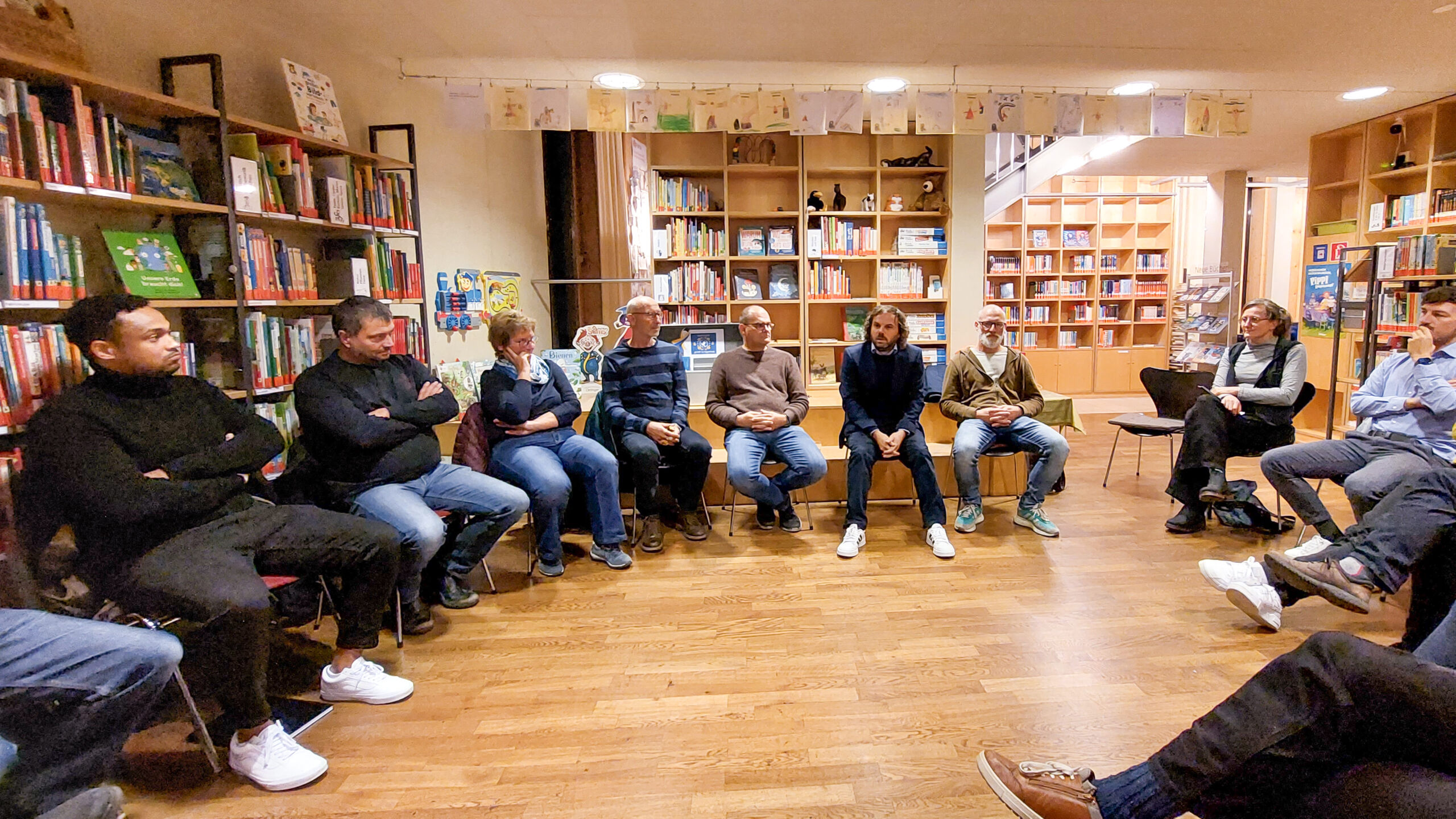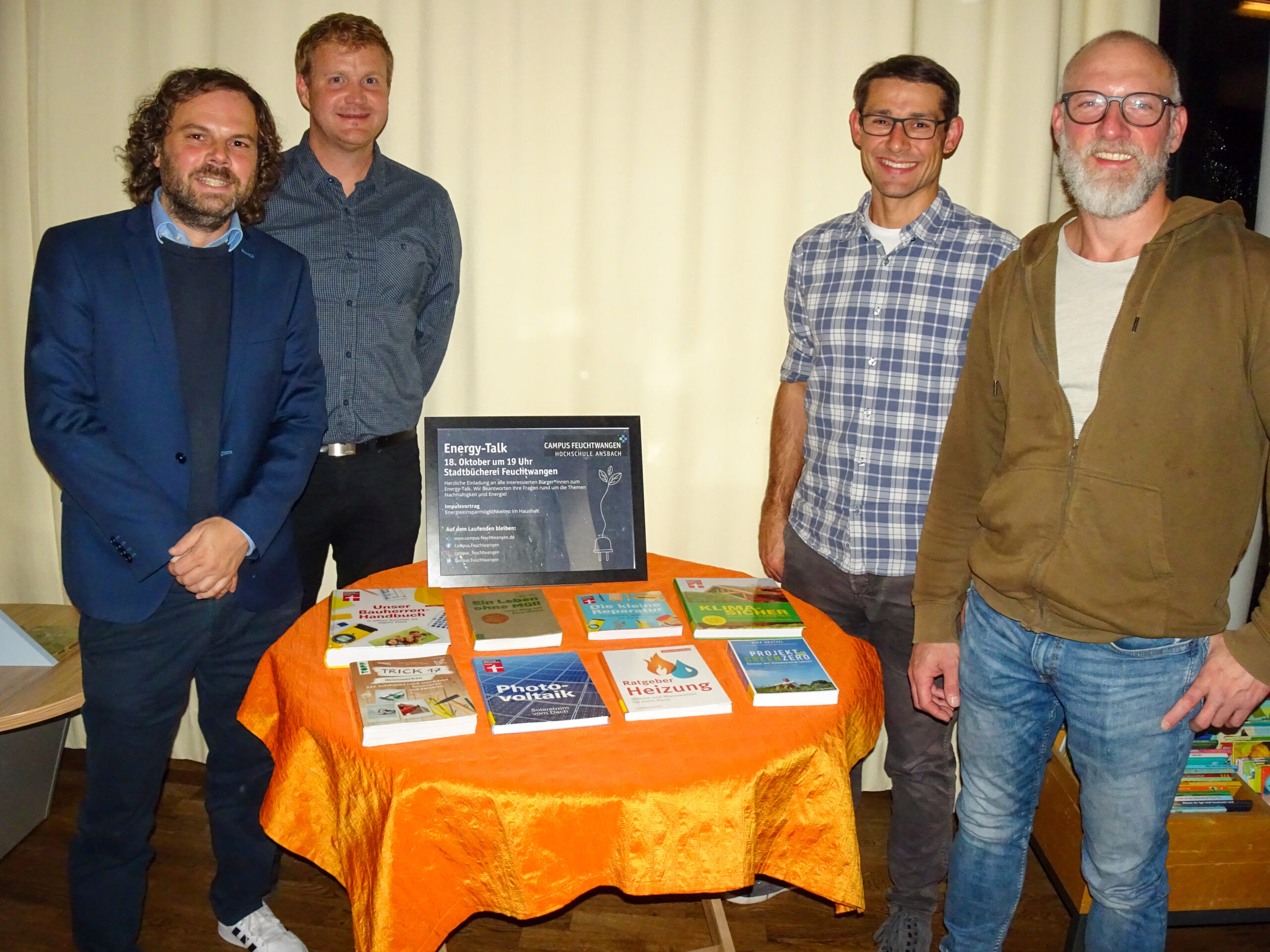Energy talk with the Feuchtwangen public library
Energy saving tips and exciting discussions at Haus Binz
On October 18, the Energy Talk of the Feuchtwangen Campus did not take place in the large research hall as usual, but in the Feuchtwangen public library. Kati Voltz, the head of the Feuchtwangen public library, welcomed all interested parties to the evening.
Energy talk of the campus in the public library Feuchtwangen.
In the keynote speech, Prof. Dr.-Ing. Johannes Jungwirth spoke about saving energy in the home. He emphasized the importance of simple monitoring of energy consumption: “Regularly recording meter readings and thus keeping an eye on energy consumption can be highly motivating, because it is amazing how small changes in everyday life can affect energy consumption. Installing reader heads on the meters that are connected to apps make it possible to monitor consumption in real time. This helps to be more conscious of energy and reduce consumption.”

In the keynote speech, Prof. Dr.-Ing. Johannes Jungwirth spoke about saving energy in the home. He emphasized the importance of simple monitoring of energy consumption: “Regularly recording meter readings and thus keeping an eye on energy consumption can be highly motivating, because it is amazing how small changes in everyday life can affect energy consumption. Installing reader heads on the meters that are connected to apps make it possible to monitor consumption in real time. This helps to be more conscious of energy and reduce consumption.”
An interesting discussion also sparked around the topic of heat pumps in older buildings. Campus coordinator Dr. Gerd Hofmann explained that installing heat pumps in old buildings is certainly possible, but may require adaptations, such as replacing radiators or converting to panel heating. Prof. Jungwirth added that it is advisable to plan heating as the last step in a comprehensive renovation to achieve the best possible result.
Dipl.-Ing. Christoph Matschi, M.Sc., himself an energy consultant, emphasized, “It is important to approach the renovation in the right order. First the roof, then the facade and windows, and finally the heating system. New windows alone can quickly shift the dew point into the wall, causing moisture to condense in the masonry and mold to form.”
Another point of discussion was the

